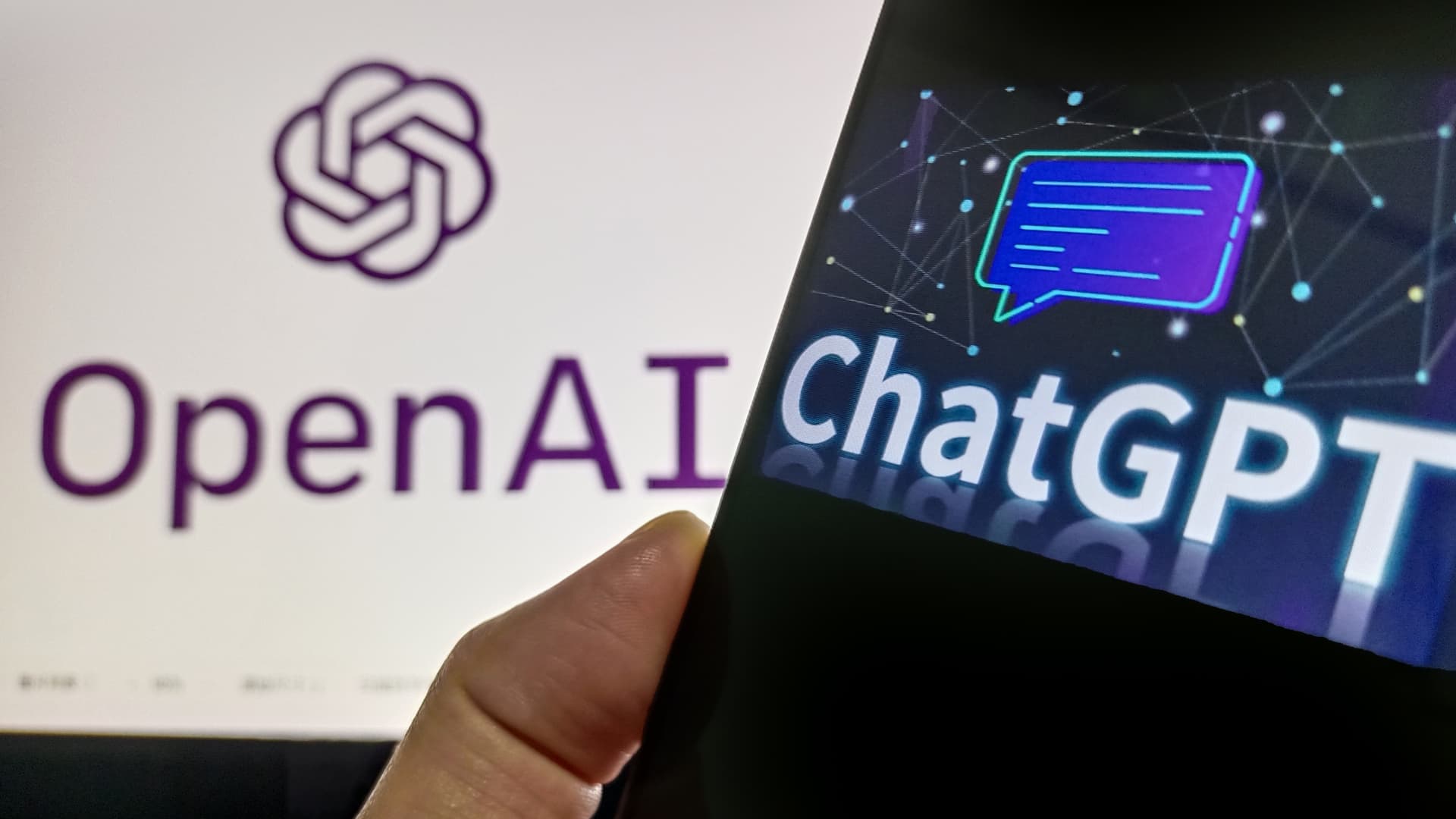
You don’t have to be a tech genius to build your own artificial intelligence chatbot.
On Monday, OpenAI, the company that created ChatGPT, announced users will now be able to create customized versions of the viral AI chatbot.
Typically, you would need to have a good understanding of coding and machine learning, plus access to large sets of training data, if you wanted to build a useful AI chatbot.
But now, “anyone can easily build their own GPT — no coding is required,” OpenAI said in its Nov. 6 blog post.
“Creating one is as easy as starting a conversation, giving it instructions and extra knowledge, and picking what it can do, like searching the web, making images or analyzing data,” the company said.
As for the types of chatbots people will be able to create, the possibilities are endless, says Hod Lipson, an engineering and data science professor at Columbia University.
“OpenAI wants people to start innovating using the chatbots and creating special chatbots,” he tells CNBC Make It. “There could be funny chatbots, serious chatbots or chatbots that can give you personalized advice.”
For example, a famous chef may be able to build their own AI chatbot that has knowledge of their personal cooking style and recipes, says Lipson. When fans download it and ask it cooking-related questions, the chatbot would be able to answer in a conversational way, making it feel as if they’re talking to the real-life chef.
To that point, OpenAI plans to allow creators to share their custom chatbots with the public through the “GPT Store.” Essentially, this will be OpenAI’s version of an app store where verified builders will be able to upload their chatbots and make them available for other users to download.
Over the coming months, builders will also be able to earn money based on how many people use their chatbot, OpenAI said in its announcement.
“They’re really trying to create a marketplace, which will allow companies and people to innovate and play around with this incredible form of AI that they’ve just unleashed,” Lipson says.
But before you make your own chatbot and release it to the world, be aware of the potential effect it may have.
“If you’re creating an AI that’s giving counseling for people in distress and it says the wrong thing, things could go badly very quickly,” Lipson says.
Additionally, you should be careful if you’re building an AI chatbot that gives medical or tax advice, for instance, since users could face severe real-life consequences if they act on incorrect advice your chatbot has given them, he says.
Despite these potential pitfalls, Lipson would still encourage people to familiarize themselves with AI chatbots since it appears that they’re only going to get better over time.
“The sooner you can start engaging with these things, the sooner you’ll get an understanding of what the future is going to look like,” he says. “We’re just in the beginning of what is a completely new era in AI and we’ll see where it goes.”
DON’T MISS: Want to be smarter and more successful with your money, work & life? Sign up for our new newsletter!
Get CNBC’s free Warren Buffett Guide to Investing, which distills the billionaire’s No. 1 best piece of advice for regular investors, do’s and don’ts and three key investing principles into a clear and simple guidebook.
CHECK OUT: ChatGPT probably won’t help you beat the stock market—but it can assist investors in other ways, says CFP
